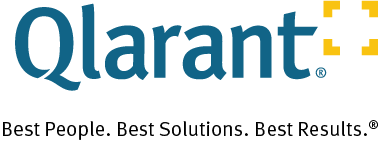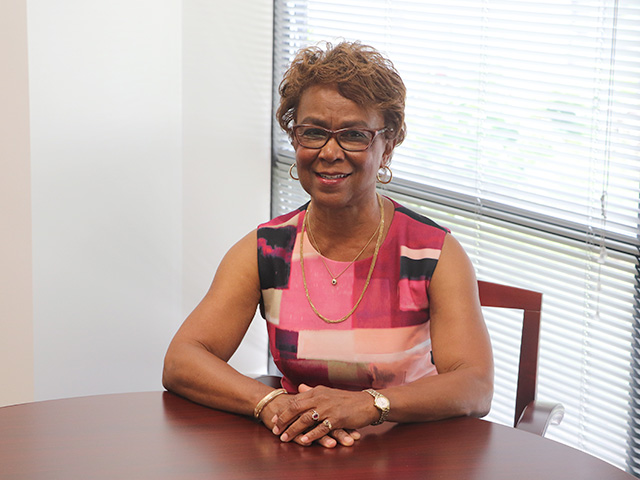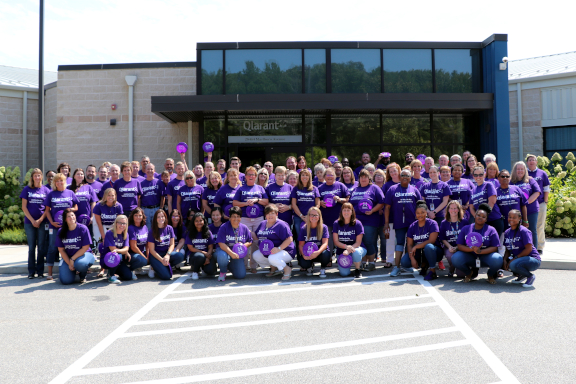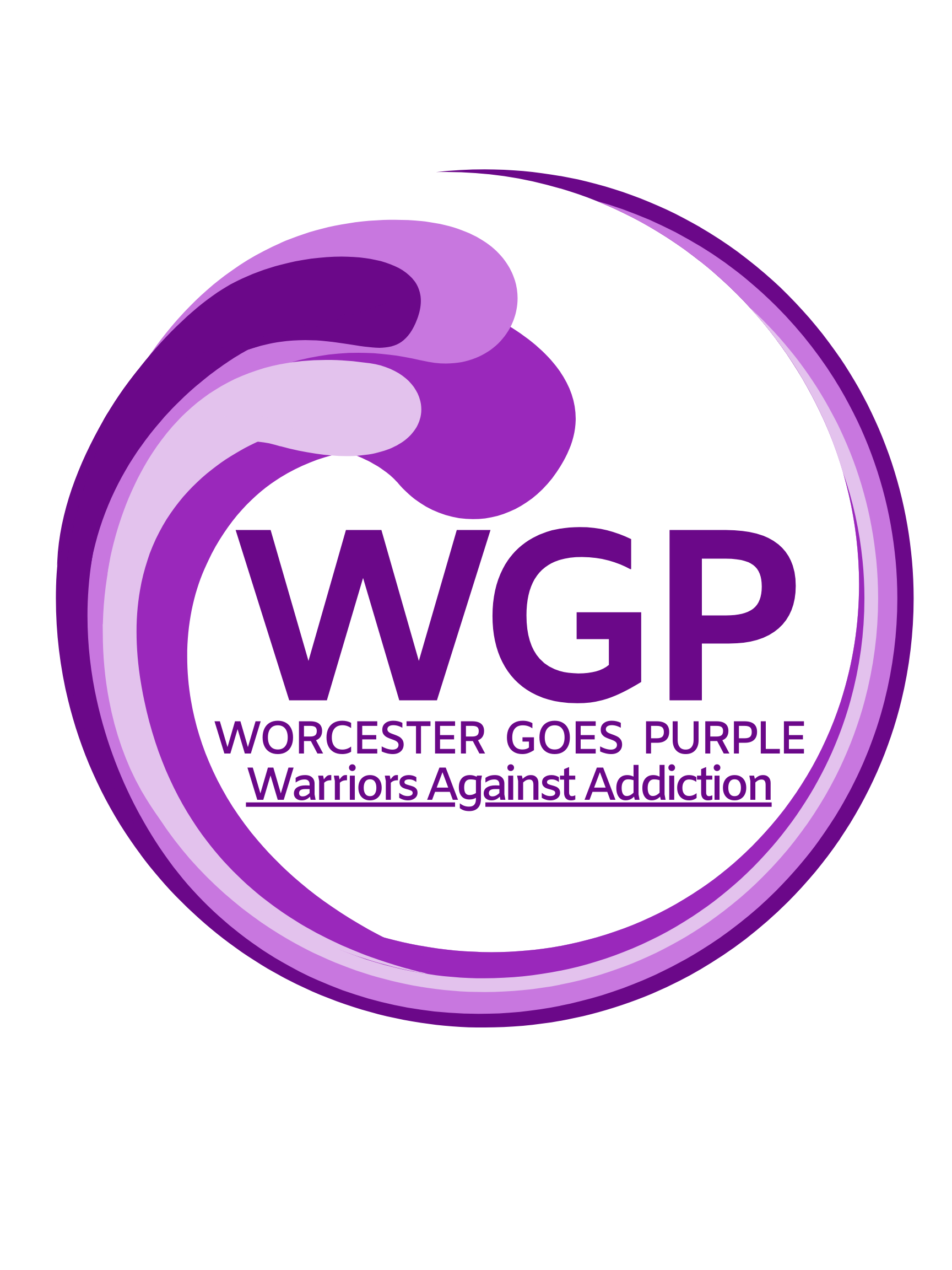Success Stories Special Edition: A Conversation with Qlarant Foundation Board Chair Dominic Szwaja, PA
 As the Qlarant Foundation board approaches the midpoint of their annual grant program, we took the opportunity to provide transparency and insight into their process. Qlarant Foundation Board Chair, Dominic Szwaja, PA, welcomed the chance to discuss the program’s past grant years, the current decisioning process, and the future of the Foundation.
As the Qlarant Foundation board approaches the midpoint of their annual grant program, we took the opportunity to provide transparency and insight into their process. Qlarant Foundation Board Chair, Dominic Szwaja, PA, welcomed the chance to discuss the program’s past grant years, the current decisioning process, and the future of the Foundation.
Qlarant: Mr. Szwaja, you recently became Chair of the Qlarant Foundation board but you’d been a board member for a number of years. When did you join the board and why were you interested in the Foundation?
Dominic Szwaja: I’ve had the privilege of serving on the Qlarant Foundation Board for over six years. When I was initially asked to be on this board I was beyond honored to have an opportunity to help direct the distribution of nearly half a million dollars to local non-profit organizations in order to improve the well-being of members of our community. I’ve spent some of my medical career providing care to underserved communities and it’s a critical piece of the safety net that can go overlooked. I knew that working with the Qlarant Foundation would be an amazing opportunity and something I wanted to be involved with. With my background in primary care medicine and public health, serving with the Qlarant Foundation seemed like a great fit.

Q: How is the Foundation’s mission, to improve the health of individuals and communities, accomplished through the work you and the board do?
DS: The organizations we fund are the ones doing all the hard work to fulfill the mission. The main responsibility of the Foundation is to determine which organizations are going to have the most impact in the communities they serve and assist them in doing so. This may seem like a relatively simple task, but when you have dozens of applications from many deserving organizations, it can be difficult to narrow it down.
Another function of the Foundation is to give ongoing support to the organizations we fund. We attempt to build a relationship with our grantees instead of simply donating money and walking away. We have promoted networking among our grantees at our grant awards ceremony, met with boards to assist in finding other funding avenues, scheduled site visits, fulfilled grantees’ “wish lists” to improve their services, and will review a grantees progress throughout the year. We want to give them the tools to succeed in our mission as well as theirs.
Q: Each year, the Qlarant Foundation provides grants to a number of non-profit organizations. What are the factors that are considered in selecting the grantees?
DS: As a place to start, an organization is required to have 501(c) status and be located in the state of Maryland or the District of Columbia to qualify for funding. Though Qlarant operates throughout the country, we have kept our funding close to our headquarters in order to be able to establish the relationships I referred to earlier. Additionally, within these boundaries, we do attempt to have diversity in the geographic location and populations served by the non-profit organizations we fund.
Q: With so many worthy non-profits applying, what are some differentiators that help the board decide?
DS: These are difficult decisions, indeed. We factor in program quality and its alignment with our mission. We look to value diversity among communities being served, especially hard to reach populations. Proposed scope of impact comes into consideration, as does the history of an organization, financial stability, and viability. We attempt to fund at least a few grass-roots organizations with smaller budgets or new organizations/programs that are attempting to address an unmet need in their community.
Q: Some organizations have received grants in multiple years. What goes into determining whether a grant should go to a previous grantee or a new applicant?
DS: This may be one of our more difficult decisions when it comes to choosing grantees. Obviously, if a grantee has been performing well and having a positive impact in their community, we are inclined to continue their funding. However, we receive many new applications each year with innovative ideas that we also like to reserve some funding for. It’s just a matter of finding that balance between the tried and true and the new and less known I guess. The best case scenario is when we start funding an organization in its early stages of development and then they go on to “graduate”, or get to the point where they are secure enough with other funding sources as to no longer need our support.
Q: How many organizations receive grants each year?
DS: Typically, we fund in the range of 15-17 grantees per year but last year we had over 20 which was a record.
Q: How far into the process is the Foundation this year and when can we expect to know this year’s grantees?
DS: This was our second year using an electronic application process and we received a record one hundred grant applications! We have completed our first round of reviews and are currently performing a financial review of the remaining grantees. The board will meet soon to finalize this years’ grantees and should have an announcement in June.
The Qlarant Foundation is the philanthropic arm of Qlarant, also a national not-for-profit organization committed to Creating Solutions to Transform Health.
Qlarant formed the Foundation in 2003 in an effort to improve health care in local communities across Maryland and the District of Columbia. Since 2006, the Foundation has awarded over $6 million to more than 90 different organizations.
For more information visit: www.qlarant.com/foundation







